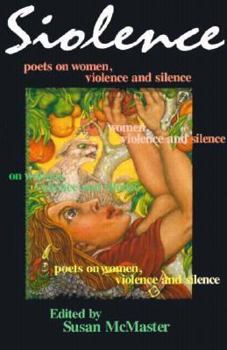Siolence: Essays on Women, Violence, and Silence
Siolence is a word coined by Penn Kemp to encapsulate the blending that so often occurs between violence and the silence enabling it. For more than a decade, a group of feminist writers in the League... This description may be from another edition of this product.
Format:Paperback
Language:English
ISBN:155082158X
ISBN13:9781550821581
Release Date:January 1999
Publisher:Quarry Press (CN)
Length:109 Pages
Weight:0.45 lbs.
Dimensions:0.3" x 9.0" x 6.0"
Customer Reviews
1 rating
An excellent collection of writing on violence and the causes of silence
Published by Thriftbooks.com User , 18 years ago
"In order to combat silence, we all must first combat the silences we impose on ourselves." Penn Kemp writes "Every witness leaves gaps, deliberate or not. A biographer learns to listen between the words for the potent silences . . . the work is to decipher that anxiety, not to smooth it over too soon or to bury it. Robert Bly describes a similar gap in his book, appropriately called The Silence of Snowy Fields, as the denial of his father's drinking . . . In the late seventies I wrote a novel, Falling Towers, which was . . . never published. Now I understand why. In it, I could only deal obliquely with the topic of family violence and its effect on children. The cares and the fears were still too fresh for me to deal directly with this topic. There was a gap in the writing." Here is an excerpt, semi-autobiographical fiction, of a woman dealing with familial ongoing violence: "Carole could talk to no-one. She could not talk. When she tried, once, twice, her father reminded her of family pride, her friends reminded her their business was not to interfere. Not to know. . . . Guilt, shame, Carole wrapped those qualities around her to keep warm, as if they were her own, protecting her from the eyes of neighbours, hiding the black and yellowing bruises under sleeves and stockings." The author mentions, "That story I could not tell because . . . it did not exist in the positive noise of ordinary living. The action of violence upon articulation might best be expressed in a neologism: siolence. . . . I'm a writer and not easily squelched, and yet I was silenced for twenty years, by fear, by shame. Violence stuns: the mouth opens and after a while no scream emerges." I bought this book and "After the Silence: Rape and My Journey Back" weeks ago, but I delayed reading them. Silence and extinction are powerful weapons. They can effectively kill creativity and activism. The contributors to this book were asked to not use poetry. Fortunately, some contributors disobeyed and altered the instruction, and did speak. "The subject is violence. It might as well be love. It's that broad. And it's that basic. Violence is the absence of love. Not that people committing violent acts are unloved, not that they love too little. During acts of violence love is forgotten. Other things flood in. Self-loathing. Jealousy. Impatience. Anger. Sometimes hate. And sometimes not feeling at all, except a curiosity, a dullness, a forgetting. The absence of feeling, but especially the absence of love." Brenda Niskala's essay is worthwhile because of the uncommon independence of her suggested solutions, suggesting that true change is not caused by violent revolution, but rather by systemic, cultural, and political structural changes "fire, agriculture, language, the wheel, which also r/evolves . . . a world where:" a) Structural inequalities do not pit man against woman, race against race. A world where power is something offered to your c






